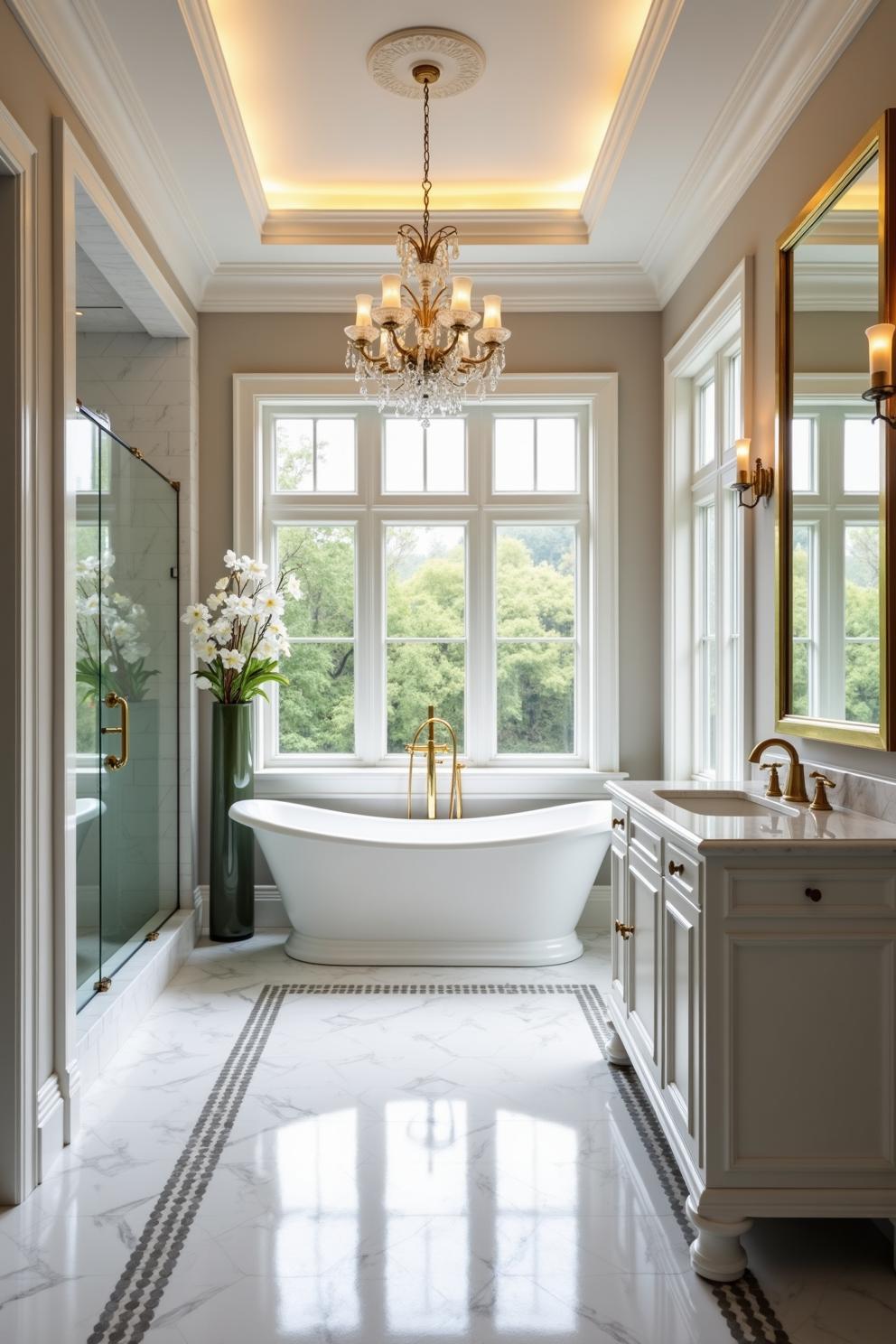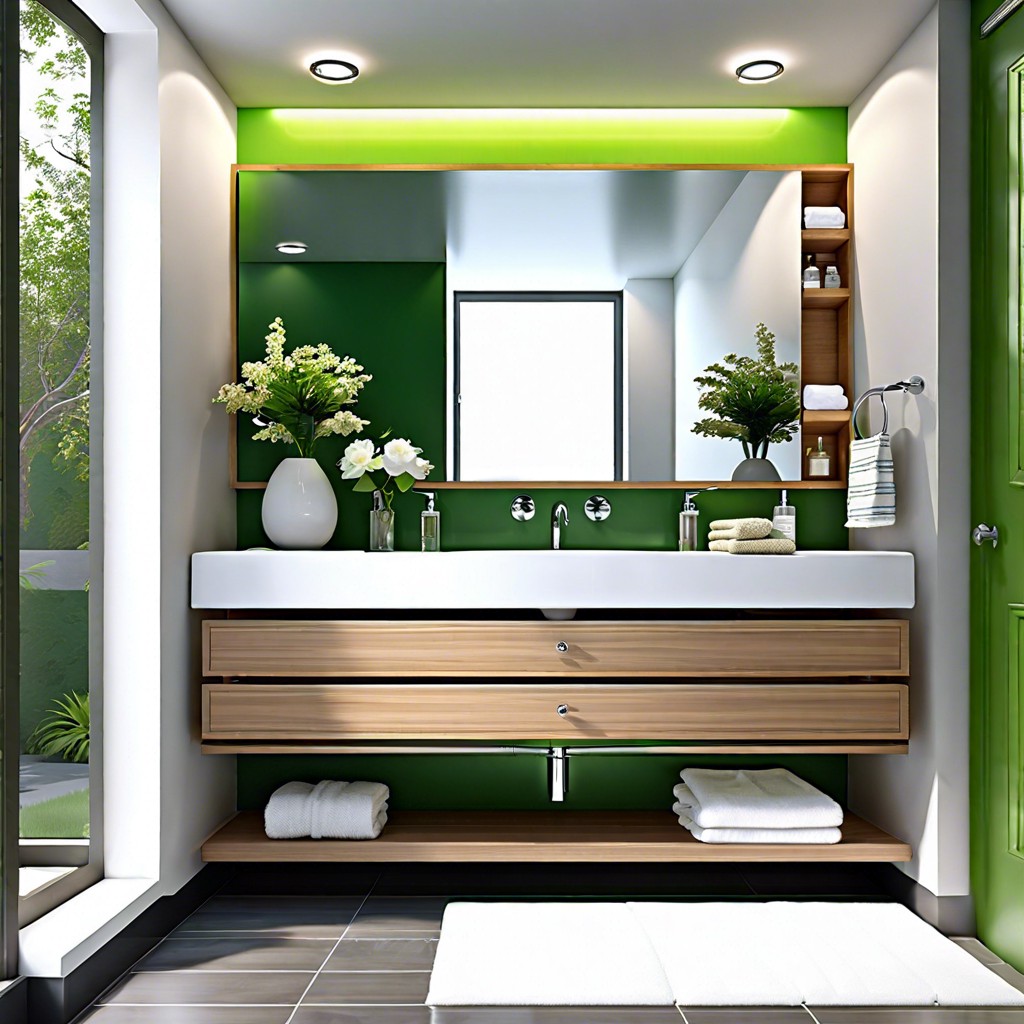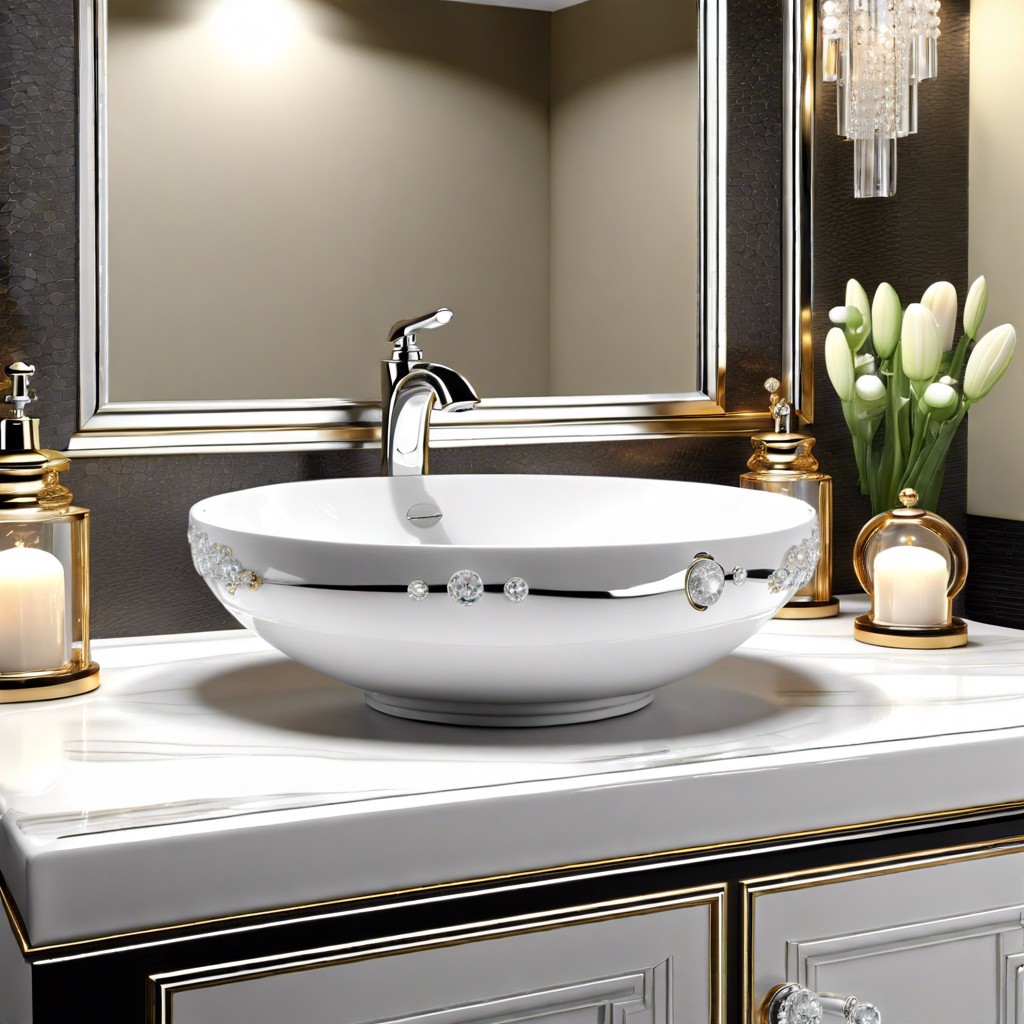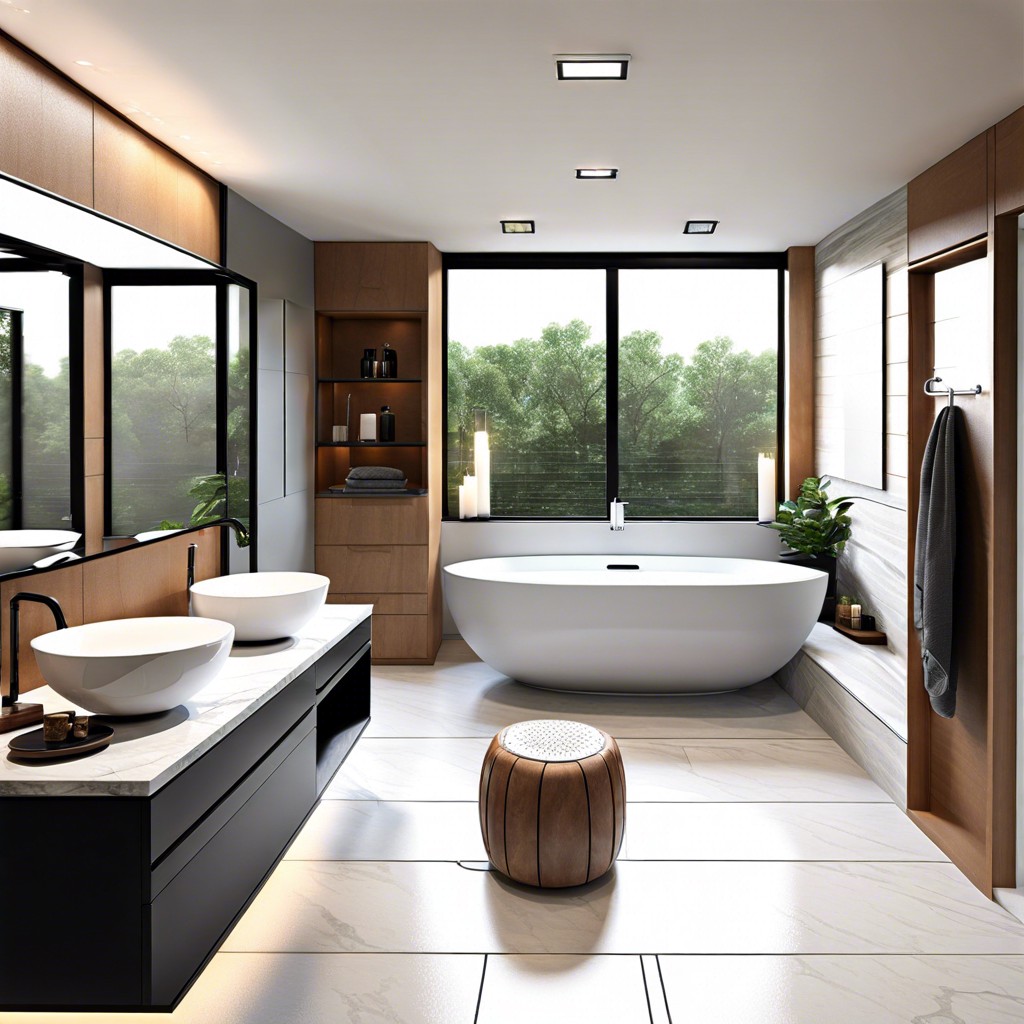Last updated on
Discover the world of affordable 40-gallon electric water heaters because they merge efficiency with economy, bringing comfort to your home without emptying your wallet.
Navigating the waters of finding a cost-effective 40-gallon electric water heater just got smoother. You’re on the right path to soaking up savings without skimping on quality.
As you dive into your search, consider that a higher energy efficiency rating can translate into long-term savings on your utility bills, while an extended warranty could safeguard your wallet from unexpected repairs.
Brands like A.O. Smith and Rheem not only stand tall on reliability but also offer economical choices for the budget-conscious.
And here’s a hot tip: you can trim down costs even further with energy efficiency rebates and tax incentives.
Plus, we’ll share how timing your purchase to coincide with seasonal sales and leveraging coupons can heat up your savings.
Let’s unravel the details and turn up the savings dial on your investment.
Key takeaways:
- Higher energy efficiency rating means lower operating cost.
- Longer warranty can provide peace of mind and potential cost savings.
- A.O. Smith and Rheem are reputable brands with budget-friendly options.
- Check for energy efficiency rebates and tax incentives to save money.
- Timing your purchase with seasonal sales and utilizing coupons can lead to significant discounts.
Factors Influencing the Cost of a 40-Gallon Electric Water Heater
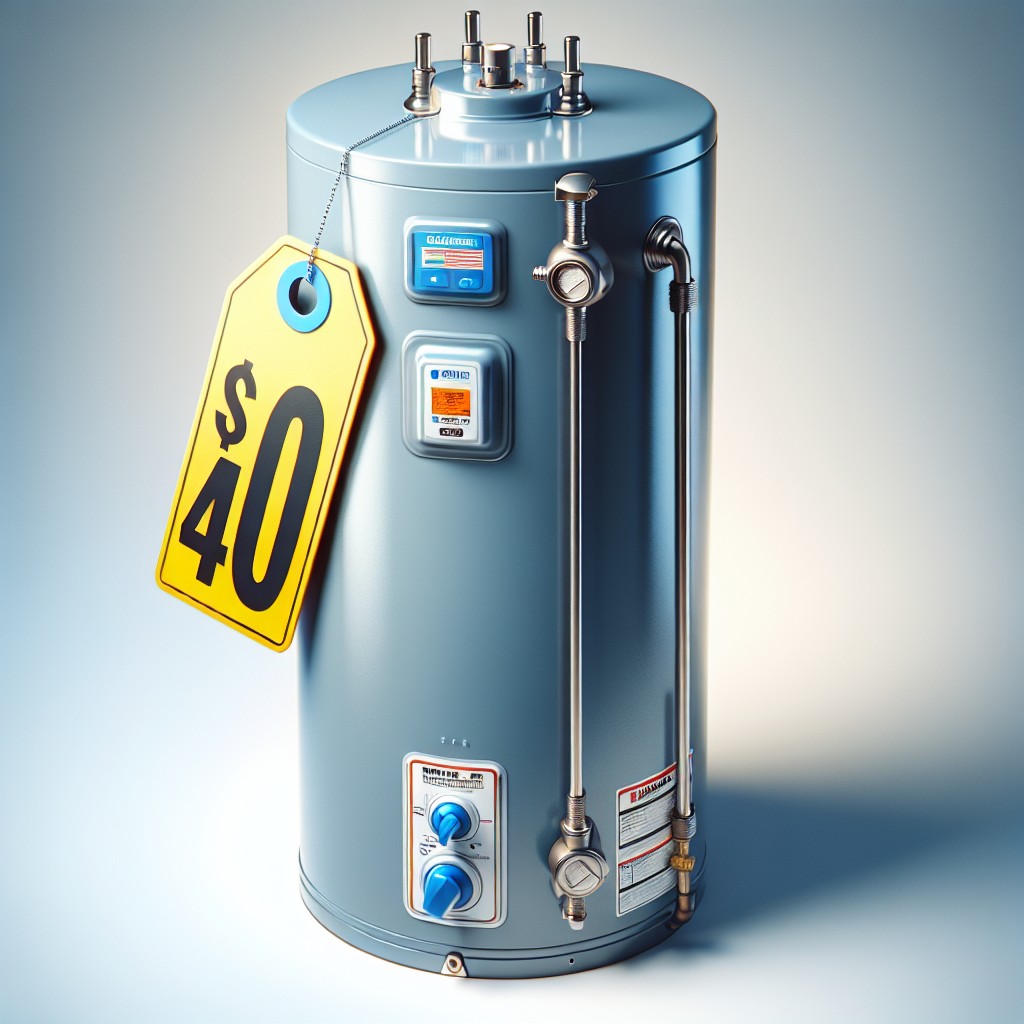
When shopping for a 40-gallon electric water heater, it’s essential to recognize the variables that affect pricing. A top factor is the unit’s energy efficiency rating, often denoted by the Energy Factor (EF) number. Higher EF ratings generally imply a more efficient heater with less wasted energy, which might cost more upfront but save you money on your bills over time.
The warranty period can also play a critical role in price determination. Longer warranties typically command a higher initial purchase price, reflecting the manufacturer’s confidence in their product’s durability.
Don’t forget that the brand name influences cost. Established brands may offer added reliability or customer service that are factored into the heater’s price. It’s crucial to balance brand reputation with your budget to find the right fit for your needs and financial plan.
Energy Efficiency Ratings
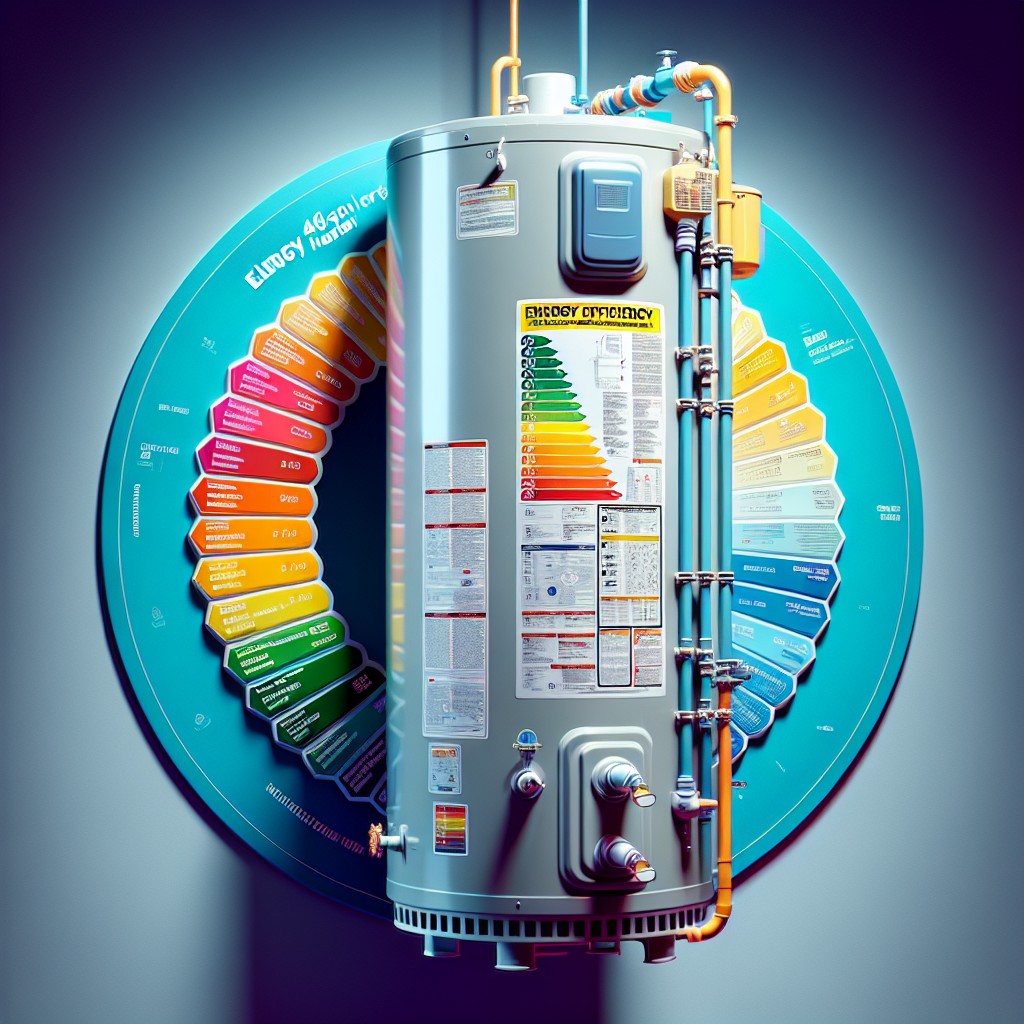
When delving into energy efficiency, it’s crucial to understand that the higher the rating, the less the water heater will cost to operate. Look for the Energy Factor (EF) or the newer Uniform Energy Factor (UEF) on the label – these numbers reflect the water heater’s overall energy efficiency. The higher the EF or UEF value, the more efficient the unit is, meaning more savings on your utility bills over time.
Another key feature is the water heater’s insulation thickness, which reduces heat loss. A well-insulated tank retains heat better, further cutting down on energy costs.
Additionally, some models are ENERGY STAR® certified, indicating they meet strict guidelines set by the U.S. Environmental Protection Agency. These units typically offer advanced features, such as heat pump technology, that can save you even more on your annual energy bills.
Remember, while these high-efficiency models may come with a slightly higher upfront cost, they often lead to long-term savings, making them an investment worth considering when selecting a new water heater.
Warranty Length
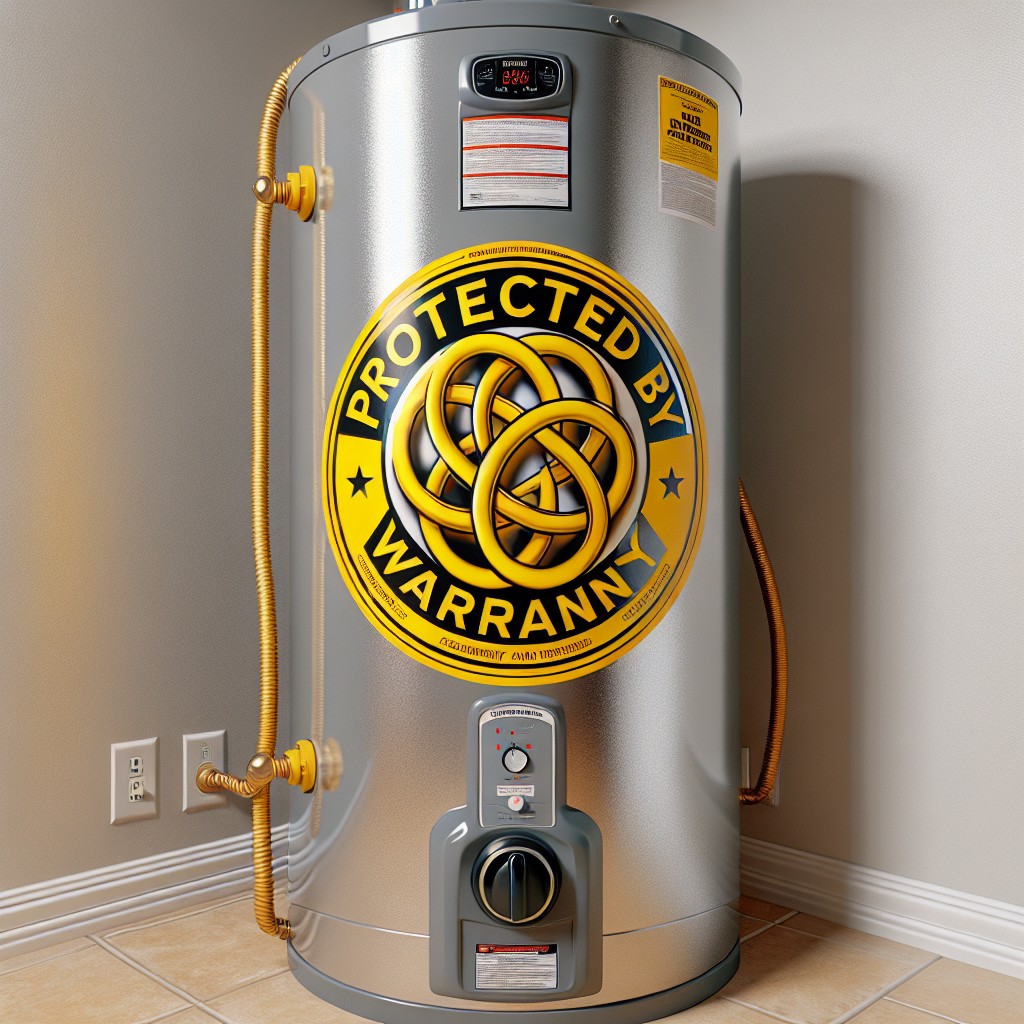
A longer warranty often signals the manufacturer’s confidence in their product, providing peace of mind that you’re covered for parts and labor costs in the event of a failure. Bear in mind:
- Typical coverage ranges from 6 to 12 years.
- A more extended warranty might mean a higher upfront cost, but could save money on potential repairs.
- Some brands offer extended warranties at an additional cost, so weigh this option against the likelihood of needing repairs.
- Check the fine print to understand what’s included, such as components not covered and the procedure for service claims.
- Remember that proper maintenance is key to keeping your warranty valid throughout its duration.
Selecting a model with an appropriate warranty is a balance between initial investment and long-term reliability. Choose wisely based on your needs and budget.
Brand

When scouring the market for an economical 40-gallon electric water heater, two giants frequently emerge: A.O. Smith and Rheem. A.O. Smith enjoys a reputation for durability and reliability, making it a go-to for many homeowners on a budget who don’t want to sacrifice quality. Their offerings in this range often combine essential features with competitive pricing.
Rheem, on the other hand, is known for its wide distribution network, making it a convenient option for those looking to purchase or service their unit. The brand’s focus on innovative technology at an accessible price point allows buyers to enjoy modern comforts without a hefty price tag.
While these are popular choices, other emerging brands also offer budget-conscious models that balance cost and functionality. Always check for specific features that align with your household needs, and remember that investing in a reputable brand can also mean savings on maintenance and energy usage down the line.
Popular Brands Offering Budget-Friendly Options
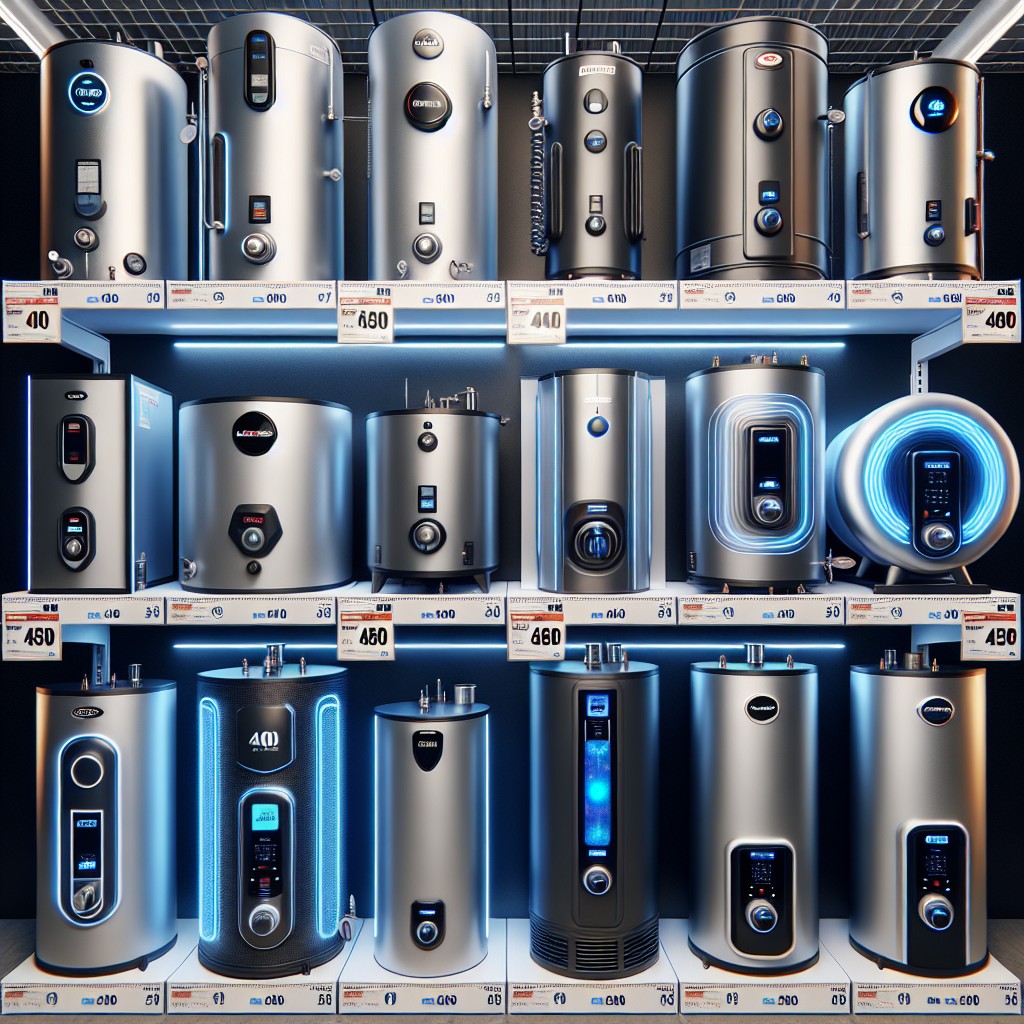
A.O. Smith is known for producing a range of water heaters that excel in longevity and reliability. Their budget-friendly models often come with a decent warranty, providing peace of mind alongside cost savings.
Rheem, another heavyweight in the industry, offers electric water heaters that combine affordability with innovation. Their budget selections don’t skimp on features, ensuring you get efficient heating without a staggering price tag.
Both brands stand out not only for their competitive pricing but also for extensive availability. You can find their economical 40-gallon units in major hardware stores as well as online marketplaces. Keep in mind that while the initial price point is a crucial factor, these brands also emphasize energy efficiency, which can lead to reduced electricity bills and longer-term savings.
O. Smith
Known for its commitment to quality at an affordable price point, A.O. Smith offers several electric water heaters that suit a modest budget without compromising on performance or durability. Their 40-gallon models are engineered to meet the needs of an average-sized household, providing enough hot water for back-to-back showers or simultaneous appliance use.
Key features often include:
- A glass-lined tank for corrosion resistance, enhancing longevity.
- Energy-efficient designs that lower operating costs by maximizing heat retention.
- Dense foam insulation, which further reduces thermal loss.
- User-friendly interfaces, allowing for straightforward temperature adjustments.
When considering A.O. Smith for your water heating needs, also keep in mind their extensive customer support network. This ensures that should you need assistance or maintenance, help is readily available. With a strong presence in various retail outlets, finding a budget-friendly A.O. Smith model can be both convenient and cost-effective.
Rheem
Rheem stands out as a reliable brand that merges affordability with performance when it comes to 40-gallon electric water heaters. Their models typically come equipped with robust insulation, reducing heat loss and resulting in lower energy bills.
The brand’s features, such as Rheem’s patented anode rods, extend the lifespan of the tanks by preventing corrosion. Moreover, Rheem water heaters often include self-diagnostic systems that simplify troubleshooting, ensuring maintenance is straightforward and less frequent.
For households with variable hot water needs, models from this brand adapt to usage patterns, offering a perfect blend of cost-efficiency and convenience. Additionally, Rheem’s products often qualify for energy rebates, enhancing their cost-effectiveness.
Price Comparison Strategies
To land the best deal on a 40-gallon electric water heater, start by scouting for rebates and tax incentives. These can significantly offset upfront costs and are often offered by government entities or manufacturers promoting energy-efficient models.
Next, harness the power of online retail platforms and price comparison websites. These resources provide a vast array of options, letting you pinpoint the most competitive prices at a glance. Keep in mind that prices can fluctuate, so frequent checks might yield better deals.
Don’t overlook local home improvement stores, either. They may not only match online prices but also provide additional services like free delivery or installation at a reduced rate. Plus, establishing a personal connection with local dealers can often lead to insider info on upcoming promotions or clearance sales that aren’t advertised online.
Remember, the key to an effective price comparison strategy is to stay informed, proactive, and patient as you navigate through the options to snag the best deal.
Checking for Rebates and Tax Incentives
Maximizing cost savings on a 40-gallon electric water heater goes beyond the sticker price. Many utility companies offer rebates for energy-efficient models, which can lead to immediate savings. It’s vital to consult the Database of State Incentives for Renewables & Efficiency (DSIRE) to find specific offers in your area.
Additionally, the federal government may provide tax credits for qualifying energy-saving appliances. Keep an eye on the ENERGY STAR website for updates on these incentives. Always preserve purchase receipts and product certifications, as these are often necessary when applying for rebates and claiming tax credits.
Remember that these financial incentives not only reduce the initial outlay but also encourage environmentally responsible choices.
Exploring Online Retailers and Price Comparison Sites
Harness the power of the internet to snag the best deal on your 40-gallon electric water heater. Online retailers often have lower operating costs, which can translate into savings for you. Look out for exclusive online discounts, flash sales, or clearance events that aren’t available in traditional brick-and-mortar stores.
Dive into price comparison websites for a hassle-free way to see prices across multiple retailers at a glance. These sites can also alert you to price drops, helping you purchase at just the right time for maximum savings. Don’t forget to subscribe to newsletters from your preferred appliance retailers to stay informed on upcoming promotions and special offers that could lower the cost even further.
When utilizing these digital tools, keep shipping costs in mind, as they can sometimes offset the savings from a lower unit price. However, some online retailers offer free shipping, which can be a considerable cost saver. Remember to check the retailer’s reputation and customer service record to ensure a smooth transaction.
Visiting Local Big-Box Stores
Shopping at local big-box retailers like Home Depot or Lowe’s can be advantageous when purchasing a budget-friendly 40-gallon electric water heater. These stores often provide competitive pricing due to their purchasing power and may offer exclusive models from reputable brands at lower prices. More importantly, they facilitate hands-on examination, allowing you to judge build quality and design features firsthand.
Don’t overlook the value of speaking directly with store associates. Their insights on the most economically efficient models, upcoming promotions, and financing options can lead to substantial savings. Lastly, taking advantage of in-store pickup can cut down on delivery costs, especially for stock items that don’t require special ordering. Keep an eye on local flyers or online store pages, as they frequently update their deals and clearance items.
Features That May Affect Price
When shopping for a cost-effective 40-gallon electric water heater, understanding how specific features can impact the price is pivotal.
Digital displays offer user-friendly interfaces that simplify temperature adjustments and system diagnostics. This modern convenience, while handy, can add to the cost.
Self-cleaning functions are designed to reduce sediment build-up, prolonging the unit’s life and efficiency. Heaters with this capability often carry a higher price tag due to the sophisticated technology involved.
The First-Hour Rating (FHR) indicates how much hot water the unit produces in an hour and can guide you in determining sizing and efficiency. Models with a higher FHR, suitable for households with greater demand, may come at a premium.
While these enhancements contribute to a water heater’s appeal and functionality, they also have a role to play in your investment decision, potentially tipping the scale towards a slightly higher initial outlay.
Digital Displays
A water heater with a digital display offers a user-friendly interface to monitor and control the temperature settings with precision. These advanced screens make it simple to adjust the settings according to your specific hot water needs, promoting energy efficiency.
The convenience of error codes displayed on the screen can expedite troubleshooting, potentially saving time and service costs. Being equipped with this technology typically increases the unit’s initial cost but could lead to long-term savings through more accurate temperature management and reduced energy consumption.
Keep in mind that, while convenient, not every budget-friendly model will have this feature, so prioritize based on what aligns with your needs and cost considerations.
Self-Cleaning Functions
A self-cleaning feature in a 40-gallon electric water heater works wonders to ease maintenance concerns. This clever function helps prevent the buildup of sediment and minerals, common in many areas with hard water. By churning the water at the bottom of the tank, it reduces the chance of sediment hardening, which can diminish heating efficiency and shorten the tank’s lifespan.
While this feature might nudge the initial price upward, the trade-off is lower maintenance costs and potentially fewer repairs over the heater’s life. It’s a smart option for those looking for longevity in their investment without needing to manually flush the tank periodically.
Additionally, heaters equipped with this feature tend to operate more quietly, a subtle but appreciated benefit in a serene home environment.
First-Hour Rating
Understanding the first-hour rating (FHR) of your water heater is essential when making your selection. This figure indicates how many gallons of hot water the unit can deliver in an hour, starting with a full tank.
Here’s the lowdown:
- Capacity vs. Demand: Even if two heaters both hold 40 gallons, one with a higher FHR can meet larger simultaneous demands. Think about morning routines; more FHR means fewer cold showers.
- FHR and Family Size: Match the FHR to your household size. A family of four might require a heater with an FHR close to the tank capacity.
- Energy Factor (EF) Relationship: An efficient water heater with a high EF might have a slight trade-off with a lower FHR. Balance your immediate hot water needs with long-term energy savings.
- Insulation Impact: Better insulated tanks retain heat longer, indirectly maintaining the FHR by minimizing heat loss.
- Recovery Rate Ties: Check the recovery rate too—it tells you how quickly the heater can warm up new water entering the tank.
Select a heater with the FHR that aligns with your peak hour demand for an uninterrupted flow of those soothing hot showers.
Seeking Special Deals
Securing a great deal on your 40-gallon electric water heater can be as simple as timing your purchase with seasonal sales. Many retailers offer substantial discounts during annual sales events, such as Black Friday or end-of-season clearances. Don’t overlook the potential savings from coupons or store-specific discounts; sign up for newsletters from your preferred home improvement stores to receive notifications about upcoming promotions.
Another avenue for savings that many shoppers miss is the existence of energy efficiency rebates. Local utility companies may offer rebates for purchasing energy-efficient appliances, so contacting them before you buy could lead to considerable savings. Similarly, explore any government tax incentives for energy-saving investments in your home.
Lastly, always inquire about bundled deals or package savings when making your purchase. Combining your water heater with other necessary home improvement items might unlock discounts that aren’t available when buying items separately.
Checking for Seasonal Sales
During holiday weekends or end-of-season clearances, retailers often slash prices on big-ticket items, including water heaters. Keep an eye out for Black Friday, Labor Day, and Memorial Day sales, when discounts can be especially steep.
Signing up for newsletters from home improvement stores can give you an early heads-up on upcoming promotions. It’s also wise to follow your preferred brands and retailers on social media, as exclusive deals or flash sales are sometimes announced through these channels.
Remember, demand during these sales can be high, so acting quickly when you spot a deal is key to securing your purchase at the lowest possible price.
Utilizing Coupons or Store Discounts
Maximizing your savings on a 40-gallon electric water heater requires a keen eye for deals. Retailers often offer coupons or exclusive discounts, so signing up for newsletters or loyalty programs can be beneficial. Frequently, manufacturers will promote sales directly on their websites, so it’s worth it to check there as well.
Some home improvement stores release seasonal coupon books with significant discounts on larger appliances. Additionally, keep tabs on events like Black Friday or Memorial Day sales, when water heaters are commonly discounted. When browsing online, plug-ins or browser extensions can automatically apply the best available discount codes to your purchase. Remember, the key is persistence and timing; with a bit of patience, you can snag that coveted deal.
Assessing Long-Term Savings
Estimating annual operating costs is pivotal when choosing a water heater. Lower initial prices can be enticing, but a less efficient model may lead to higher electricity bills over time. Opt for a unit with a high Energy Factor (EF) rating, which measures how efficiently a heater converts energy into hot water; the higher the EF, the more cost-effective it will be in the long run.
Installation fees can also swing your budget. Whether you’re planning a DIY installation or hiring a professional, these costs should be factored into the overall expense. Professional installation ensures safety and may come with service guarantees, but it will add to your upfront costs. Compare quotes from various plumbers or installation services to find a balance between expertise and price.
Remember, the initial purchase price is just part of the investment. Assessing the total cost of ownership, including ongoing energy use and installation costs, ensures that your budget-friendly choice remains economical throughout its lifespan.
Estimating Annual Operating Costs
When considering the purchase of a budget-friendly 40-gallon electric water heater, the initial price tag is only part of the story. To truly gauge the cost-effectiveness of your investment, you must also compute the expected annual operating expenses. Electricity consumption largely dictates this figure and is influenced by the unit’s energy factor (EF) rating—a higher EF signifies greater efficiency.
Additionally, current electricity rates in your locality play a vital role; multiply the rate by the estimated kilowatt-hours (kWh) the heater will use annually. Furthermore, lifestyle habits, such as the frequency and duration of showers, also impact the operating cost. Insulate the tank and pipes to conserve energy, and lowering the thermostat can contribute to reducing these costs.
Finally, remember to factor in the potential savings from a model that may cost more upfront but offers superior energy efficiency, translating into lower annual energy bills.
FAQ
What is the most economical electric water heater?
The most economical electric water heater is the heat pump type, which can utilize up to 60% less electricity compared to traditional options, albeit requiring more space for installation.
Does a 50 gallon water heater cost more to run than a 40 gallon?
Yes, a 50-gallon water heater is more cost-effective to run than a 40-gallon one due to its lower energy use for heating up cold water.
What is the cheapest water heater option?
The cheapest water heater option in terms of upfront cost is the tankless water heater.
How does the energy efficiency of a 40-gallon electric water heater compare to other sizes?
A 40-gallon electric water heater typically offers comparable energy efficiency to other sizes, as its efficiency depends more on its Energy Factor (EF) rating than its size.
What are some tips for maintaining a 40-gallon water heater to extend its life and save costs?
Regularly drain your 40-gallon water heater, install a water softener to prevent mineral buildup, insulate it for energy efficiency, and perform annual inspections to extend its lifespan and save costs.
What factors should you consider when buying a 40-gallon electric water heater to ensure it’s the most economical option for your home?
When buying a 40-gallon electric water heater, consider factors like energy efficiency, first hour rating, warranty, operating cost, installation cost, and the brand reputation to ensure it’s the most economical option for your home.
Recap
